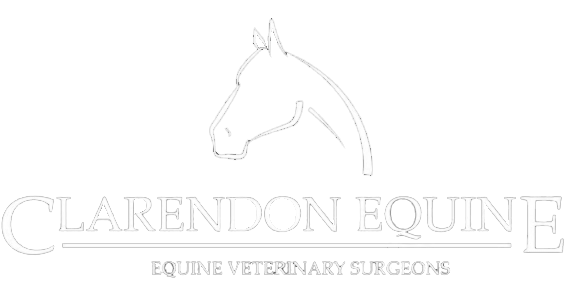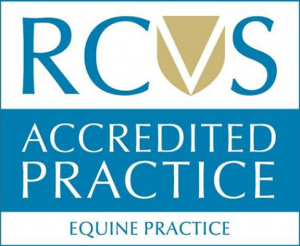Sustainability Policy
We’re committed to making our veterinary practice as sustainable as possible and this is something we review on a regular basis with suggestions from our team and our clients on what we can do reduce our impact on the environment as much as possible.
We acknowledge that our veterinary activities, services and operations have an impact on the environment and have identified key impacts related to our business that contribute to our environmental and carbon footprint. Through the implementation of this sustainability policy we will encourage wide reaching participation, working to reduce these impacts, whilst upholding the highest standards of animal health, welfare and clinical care for our patients.
Sustainability champion: Mrs Victoria Hall BVetMed CERT AVP (EM) MRCVS
Key Impacts
- Use of fossil fuels (i.e. oil and gas usage)
- Use of electricity
- Waste generation & disposal Use of anaesthetic gases
- Use of water
- Carbon emissions from transport of personnel & animals
- Carbon emissions from fleet vehicles
- Carbon emissions from staff and customer travel
- Consumption of raw materials (medical consumables/plastics/pharmaceuticals)
- Use of parasiticides
- Use of antimicrobials
- Procurement of goods and services
Having identified the key environmental impacts of our practice, we commit to reducing these through a journey of continual improvement
Actions and targets
- Practice responsible resource use.
Electricity, water and gas reduction targets for the next 5 years to reduce the usage of all of these by at least 5% by the end of this period. We are committed to achieving a higher percentage than this if it is practically possible to operate our business in this way. During this time, we will also look to switch to a company providing renewable sources of energy compared to our current providers (EDF and Opus energy) if we are unable to reduce our usage much further. Switching our electricity provider to a company with a renewable source will be available when our current contract end in March 2026. The practice has smart meters installed for both our gas and electricity so we can accurately assess our usage monthly and to compare year on year.
The practice does the majority of its administrative work in a paper free manner with all our invoicing, newsletters/marketing information, the majority of our insurance claims, consent and registration forms all able to be submitted via email (editable documents) or an online form via our website. All our healthcare and appointment reminders are sent out via email and SMS only. We are committed to being paper free for all of the documentation we supply to our clients where possible. Our current target is to ensure all consent forms are supplied via email to sign electronically and all prescriptions are sent electronically where accepted by the pharmacy (as this feature is available on our new practice management software).
- Recycling
Paper and cardboard – The practice recycles all paper and cardboard materials in both the clinical and administrative areas. We have large, designated recycling bins outside provided by the council.
Food drink cans/tins – The practice team recycle all food/drink cans/tins used in the food/rest areas. Bins are available in these areas to pre-sort these, and they are recycled in the designated food/drink cans/tins bin outside which is provided by the council. We are currently unable to recycle the small amount of glass we produce from food products so these are popped in with domestic recycling collections from the on-site accommodation.
Plastics – the practice recycles as much plastic products as is feasibly possible from the products and packaging we are supplied with. A designated plastics packaging bin is available outside which is provided by the council.
General waste – Two small general waste bins are utilised by the practice for all non-recyclable waste. We aim to minimise the total amount in these as much as practically possible by recycling as well as ordering products/materials which are more sustainable wherever possible.
Buildings/equipment waste (from improvements/replacing old equipment) – The practice always uses a local reputable skip company who will sort any of this waste and recycle/reuse as appropriate if this is required for buildings work. Any old equipment which can be re-used is either sold on or donated to veterinary charities if it is still useable (for example our old x-ray generator). Any metal equipment that cannot be passed on to another veterinary organisation is recycled via our local metal waste recycling collection Brand and Howes.
Waste audit – The practice commits to auditing waste and recycling to check everything is sorted correctly on at least a quarterly basis so we can continue to improve the amount we recycle and reduce our general waste output. Checking the number of black bags, we are disposing of to empower staff to recycle as much as possible.
- Be sustainable in our operation
The main area of impact here is our fleet vehicles carbon emissions. Our fleet consists of 3 Vans and 1 pick-up truck (petrol/diesel) which are all <4yrs old. Our Half price zone visit scheme is a great way for us to reduce un-necessary journeys and group visits together according to area and thus reduce our overall milage. We always endeavour to book or group visits together if they can be (even for non-zone visit requests). Our vets are well informed on the best ways to drive more efficiently, and we share these tips at practice meetings. When our cars are due for replacement at the end of their useful life, we will aim to assess whether switching to electric vehicles would be appropriate at that time with the daily milage required and installation of charge points at the practice and homes of the vets if required.
Our staff regularly make use of remotely delivered CPD solutions for both the vets and admin team to reduce any car journeys where possible to these events (especially for non-practical courses). Car sharing or public transport are utilised for any CPD courses attended in person. We aim to promote the use of remotely delivered CPD solutions for our staff for at least 50% of their total hours of CPD each year where possible. It is accepted that the Vets will regularly attend 1-2 practical courses each year.
Minimising anaesthetic gas usage. We regularly employ techniques such as local anaesthetic blocks and epidurals to perform standing surgery instead of a general anaesthetic for many procedures (e.g. perineal melanomas/sinus surgery/dental extractions/laser sarcoid removals). We do not use nitrous oxide in our practice, and we regularly review our general anaesthetic plan to make sure of appropriate injectable techniques for certain cases. For example, we regularly use total intravenous anaesthesia for castration of older stallions in our recovery box.
- Use medicines responsibly
We encourage the responsible use of medicines and in-particular the reduction in the usage of antimicrobials and parasiticides where practically possible. We adhere to the BEVA responsible use of antimicrobials to make sure we only prescribe appropriately according to the case and conserve protected antimicrobials unless absolutely necessary due to the results of culture and sensitivity testing.
We stock check the practice and vehicles monthly to help keep stock levels tight and reduce out of date medicine wastage. Reports are run off each month and stock with short dates is re-distributed to make sure it can be used effectively to reduce wastage. We have already significantly reduced our total wastage from £5000 stock in 2023 to a value of £800 in 2024 and we aim to review this annually.
We have a worming plan available to clients to sign up to via our website which encourages the use of faecal worm egg counts and tapeworm saliva testing, so we only recommend treatment when necessary and thus reducing the use of parasiticides through this plan policy.
We encourage the correct disposal of medicines by our staff and clients. We aim to continue to encourage clients to dispose of any un-used or out of date medicines by giving them back to our vets whilst we are at a visit to their yard (to reduce extra journeys) so we can dispose of them correctly at the practice. Please remember that unopened/unused/out of date medications can be returned to us for safe disposal.
- Empower the team
We encourage all staff to come up with new ideas and suggestions to improve our sustainability policy and adapt it over time to accurately reflect what we can achieve and where we can push our goals further. We have once monthly whole team meetings so any new suggestions can be discussed between all team members and plans put into action based on group decision making. Any suggestions outside of staff meetings can always be discussed with our sustainability champion Victoria Hall MRCVS. Our target is to engage in suggestions once a month and empower the team to research further areas we can address annually in our policy by looking at resources from vet sustain and also the British equine veterinary association (BEVA).
Waste reduction plan – Targets for the next 5 years by 2029
- Suppliers – Consolidate our ordering of consumables to a maximum of 1-2x per month from our designated suppliers.
- Single use plastics – Reduce our usage of single use plastics throughout the practice by switching products to more sustainable materials wherever possible. Switching our Sharps bins to reusable ones and our medicines and clinical waste bins to bio bins instead with the co-operation of our veterinary waste disposal company.Dispensing medications into paper bags when only appropriate for the items and discontinuing the use of plastic bags for medication dispensing.
- Reusable products for theatre – Cloth surgical hats and designated theatre shoes for each member of staff which can be easily cleaned (crocs). Reusable cloth surgical gowns and drapes wherever possible and appropriate for the type of surgery being performed (this is dictated by the preference of the referral surgeon visiting us for the procedure from the royal veterinary college).
- Recyclable/reusable autoclave Packaging – The practice already uses MILLPACK recyclable autoclave packaging. We will commit to trialling reusable sterilisation wraps or tins to further reduce the waste produced in sterilising instruments (e.g. for suture packs regularly used in the vehicles).
- Reusable products for barrier nursing/zoonotic disease – All vets to use washable waterproofs or boiler suits carried in the car for this purpose. Stop the use of shoe covers completely since the practice can operate with the use if separate wellies for this purpose either when out at a yard or placed next to a stable for barrier nursing.
Our pledge
We commit to reducing our environmental impact by holding ourselves accountable for the targets and commitments set out in this sustainability policy and through our commitment to the RCVS practice standards sustainability module.


